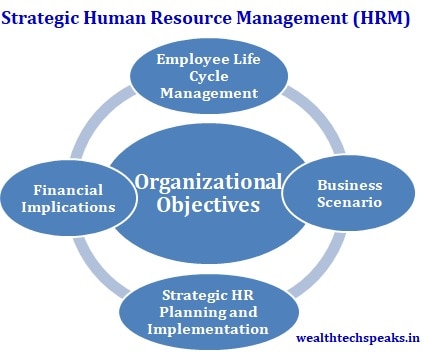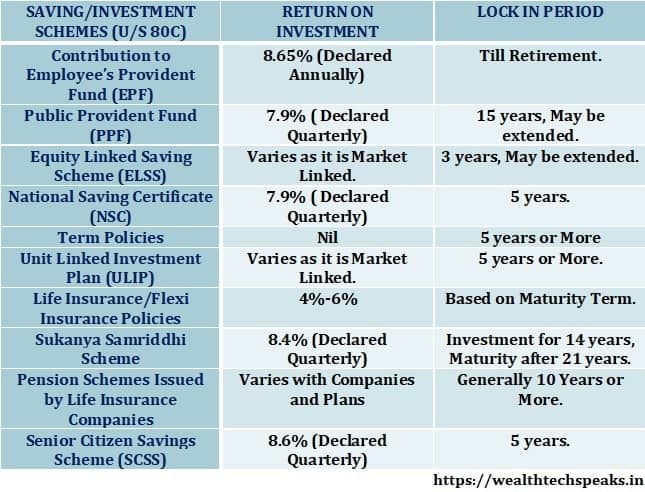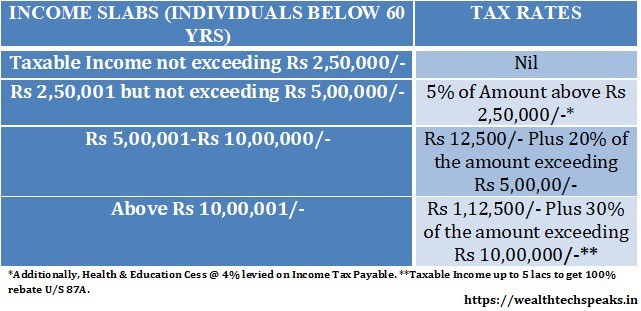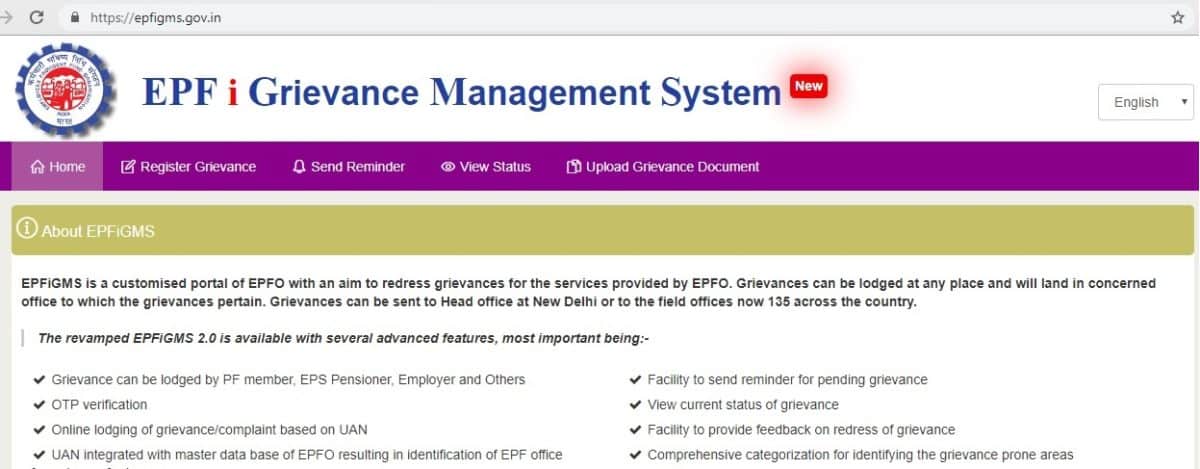
National Pension Scheme (NPS): Features, Benefits & Drawbacks
- Posted By Amritesh
- On February 26th, 2019
- Comments: one response
National Pension Scheme (NPS) is a retirement benefit scheme introduced for the Individuals to provide regular income post retirement. The scheme was initially rolled out for the Government Employees, but in 2009 the scheme was opened for all the citizens of India. Currently, Individuals between the age of 18-65 years is eligible to subscribe to National Pension Scheme (NPS). The age limit for the subscription to the scheme was increased to 65 years from 60 years. Recently, Government allowed tax exemption on the NPS Withdrawal corpus (60% of total accumulation). Like every financial product, National Pension Scheme (NPS) has its own sets of features, advantages and disadvantages.
The National Pension Scheme (NPS) is hailed as one of the economical retirement benefit plan. However, Liquidity and Tax on Annuity Benefits are some of the key concerns which deter Individuals from subscribing to National Pension Scheme (NPS). In my opinion, since NPS is a retirement benefit plan so restriction on withdrawal makes sense. Moreover, Government is constantly planning revisions to make it more appealing for the investors.
Features of National Pension Scheme (NPS)
Government Sponsored Plan: National Pension Scheme (NPS) is government introduced retirement plan, regulated by the Pension Fund Regulatory and Development Authority (PFRDA). PFRDA established NPS Trust to closely monitor the performance of the Fund Managers, safeguard the interests of the subscribers, periodically assess if any revision is required. NPS being backed by the Government lends creditability to the scheme.
Primary Focus on Retirement Benefits: NPS primarily focuses on providing retirement benefit to the Subscribers. Thereby, restriction on withdrawal is in place to ensure that the purpose of the scheme is not lost. Purpose of NPS is to ensure regular flow of income to the Subscriber on attaining the prescribed age so that the Individual is able to sustain him/her self when other streams of income dry up.
Economical Plan: NPS is one of the low cost retirement products available to the individuals. Low Fund Management Charges results in higher yield, enabling Individuals to amass substantial fund under NPS. Minimal Annual Contribution limit makes it an attractive retirement benefit plan for many.
NPS: All Citizen Model
Ease of Access: Individuals may easily subscribe and contribute to the NPS via the offline as well as the online mode. Subscription is available online through e-NPS, alternatively Individuals may also subscribe offline through the POP-SP (Point of Presence-Service Providers). Contribution and Statement of Holdings is available online for the Subscribers. Option to change the pattern of investment allocation and Pension Fund Manager is also available under the scheme.
Financial Discipline: NPS is a long term Investment product which instills financial discipline among Investors. Subscribers need to plan their finances in order to meet the financial goals. Thereby, Investors need to ascertain their future financial requirement and plan accordingly.
Tax Implication on NPS: Tax Benefit is also available on investment in NPS. Recent amendment makes NPS partially EEE (exempt-exempt-exempt) scheme, implying the investment, return and mature proceeds (only withdrawal amount) is Tax free. Investment in NPS up to Rs 50,000/- is eligible for deduction U/S 80CCD (1b), the deduction available is up and over the limit available U/S 80C.
60% of the NPS corpus eligible for withdrawal on attaining the age of 60 years is also made Tax free. However, the 40% of the Fund utilized to buy an Annuity Plan remains taxable as per the Tax Slab applicable, on the regular income received by the Subscriber.
Benefits of Investing in National Pension Scheme (NPS)
Regular Source of Income Post Retirement: NPS is a retirement benefit plan. It provides regular income to the Subscriber post retirement. NPS is a social security & welfare plan aimed at addressing the needs of the senior citizens, making them financially independent.
Tax Benefit Under NPS: Contribution up to Rs 50,000/- made towards your NPS account is eligible for Tax Deduction U/S 80 CCD (1B), which is up and over the deduction of Rs 1,50,000/- available U/S 80C. Individuals exploring additional tax saving options may also look to invest in Scheme. As announced recently, entire withdrawal amount 60% of the total NPS corpus is exempted from tax at the time of retirement. Previously, only 40% of the withdrawal amount was exempted. Thus the entire withdrawal corpus is exempted from tax. This implies that post mandatory utilization of 40% of the fund to buy an annuity plan, no tax is required to be paid on the rest of the lumpsum withdrawal.
Mandatory Investment in Annuity Scheme: Referred as drawback by many, Individuals have to mandatorily invest 40% of the fund to purchase pension annuity. If you look at it with investment perspective it is a bad idea to invest in Annuity plans as they are not tax efficient and returns are also pretty low. However, do understand this is a social security scheme and aims to provide a pension to the retired so that they can sustain themselves. Therefore, I believe the rider is in place to make sure that the funds are not ill utilized or spent entirely to meet some other purpose. In this regard, I feel this mandatory purchase of annuity is good although the annuity payout is quite low.
NPS: Government Model
Diversification of Funds: Investment in NPS is diversified into 4 classes of funds, namely Equity (E), Fixed Return Instruments (C), Government Bonds (G), Alternative Investment Funds (A). Individuals have the option to chose the allocation of funds based on their preference and appetite to take risk. However, allocation in equities is restricted to 75% of the contribution.
Thus, it ensures that Individuals benefit from the equity market. At the same time, allocation to Government and Fixed Return instruments ensure that in case of equity market under performing Subscribers don’t lose out heavily on their investment.
Low Cost Investment: This is one of the Low Cost retirement benefit scheme available to the Subscribers and is one of the key selling points of the scheme. Fund Managers charge a nominal fee of 0.01% to manage the fund which is beneficial for the investors. Subscribers are required to contribute minimum of just Rs 1,000/- annually in the scheme.
Professional Management of Funds: The fund is managed by Pension Fund Managers (PFMs). PFMs are professional fund managers who manage the pool of funds with the objective of providing maximum returns on investment. Subscribers do not have to manage their investment as PFMs undertake the same at a very nominal cost. The fund may be allocated in 4 different asset classes based on the risk appetite of the Subscriber. Moreover, Subscribers have the option to switch between the 8 PFMs available under NPS.
Drawbacks of Investing in National Pension Scheme (NPS)
Restricted Exposure to Equities: It is observed that equity market offers better return over a longer period of time which is generally higher as compared to other fixed return instruments. Fund Allocation to Equities has been restricted to maximum of 75% of your investment. This may not be a major issue with short term investors but for young individuals in their 20’s-30’s this means potential loss of opportunity to accumulate more wealth through maximum exposure to Equity Market.
Restriction on Withdrawal: One of the major drawbacks considered by many is the restriction imposed on withdrawal of your contribution. Only 25% of the total investment may be withdrawn at any point (to meet specific needs) also discourages many to invest in the scheme. Moreover, if the entire investment is withdrawn before the age of 60, then 80% of the fund is to be utilized in buying an annuity plan which makes it unviable plan for many individuals.
Annuity Payout Taxable: Although entire withdrawal amount (60% of the NPS Fund) is exempted from tax, but 40% of the fund required to purchase annuity plan carries a deferred tax liability on the same, meaning, that tax will be applicable on the Annuity payout received by an individual as per the income tax slab applicable.
Retirement Benefit Plan: NPS
Low Returns on Annuity Plans: Minimum of 40% of the maturity proceeds needs to be vested in Annuity Plans which will provide regular income to the Subscriber. However, the Annuity plans offer poor returns on investment which may fall behind the inflation rate. Moreover, Annuity plans are not at all tax efficient. Thus, the scheme may not be enough to meet the financial needs of retired individuals.
Better Alternatives Available: Mutual Funds, Public Provident Fund (PPF), Tax Free Bonds, etc have shorter lock in period, along with being tax efficient and are more flexible when compared to NPS. Although additional Tax Benefit is available on investment in NPS.
Return on Investment Not Guaranteed: The investment in this scheme does not guarantee any minimum or fixed return as of now as it is subject to fund performance over a period of time. Hence, Individuals cannot be sure of the return on the investment and have to observe the fund performance closely. This again means one has to keep an eye on market trends which will reflect in the performance of the funds as well. Investment in Equities may be exposed to volatility and risk in the Capital Market. Even the investments in Bonds & Debt Funds are prone to Credit Risk (default on debt). Hence, one needs to be cautious with the investment.
Investment in National Pension Scheme (NPS)
Investment in National Pension Scheme has its own set of benefits and drawbacks. In my opinion NPS is a decent retirement plan provided one has a well diversified portfolio which includes investment in Equity Funds, Debt Funds, Bonds along with adequate Life and Health cover. Remember, a single financial product is not enough to provide complete financial cover.
This article is for informational purpose only. Readers are advised to research further to have more clarity on the topic. It is very important to do your own analysis and consult your Financial Advisor before making any investment based decision.








you are really a good webmaster. The site loading speed is incredible. It seems that you’re doing any unique trick. In addition, The contents are masterwork. you’ve done a excellent job on this topic!